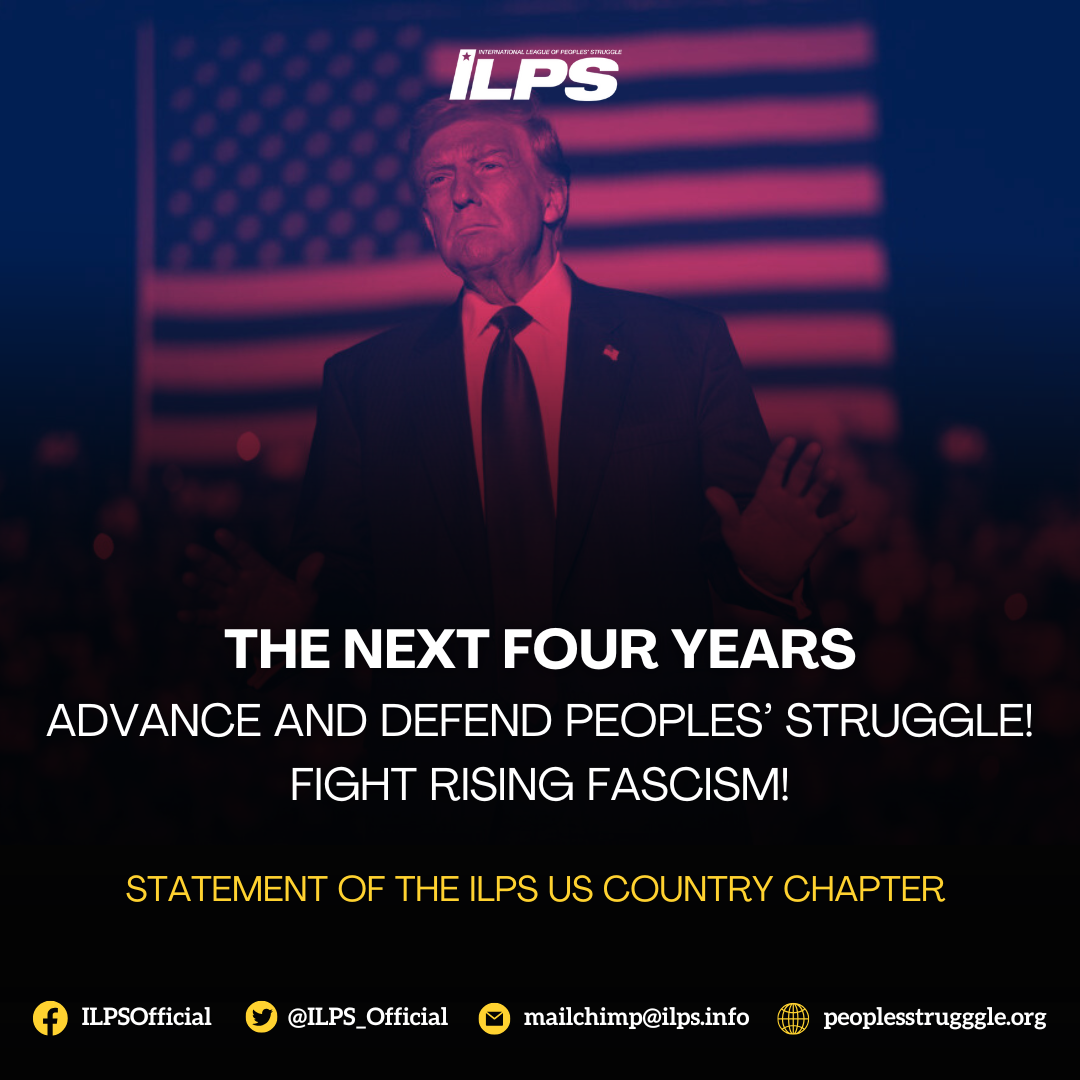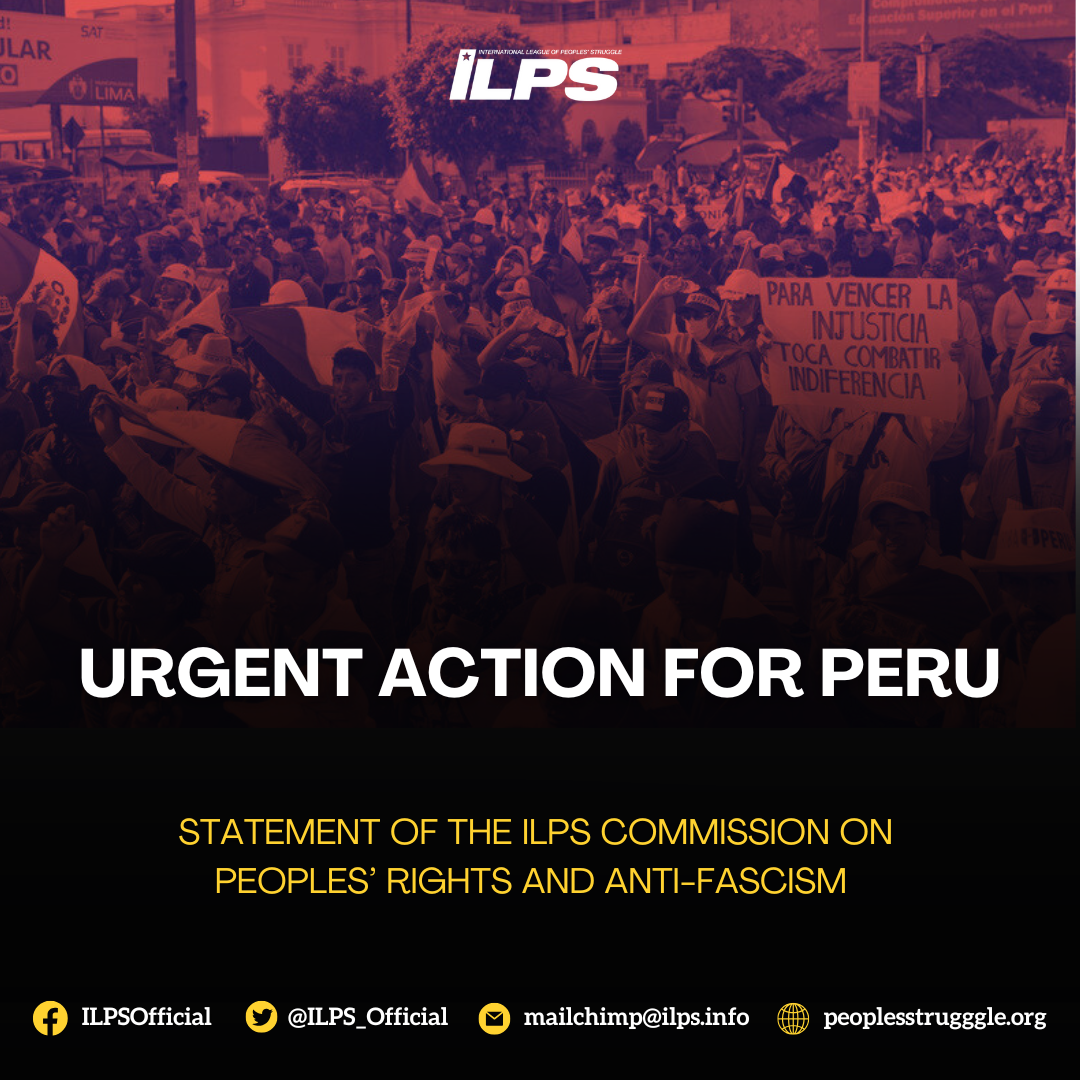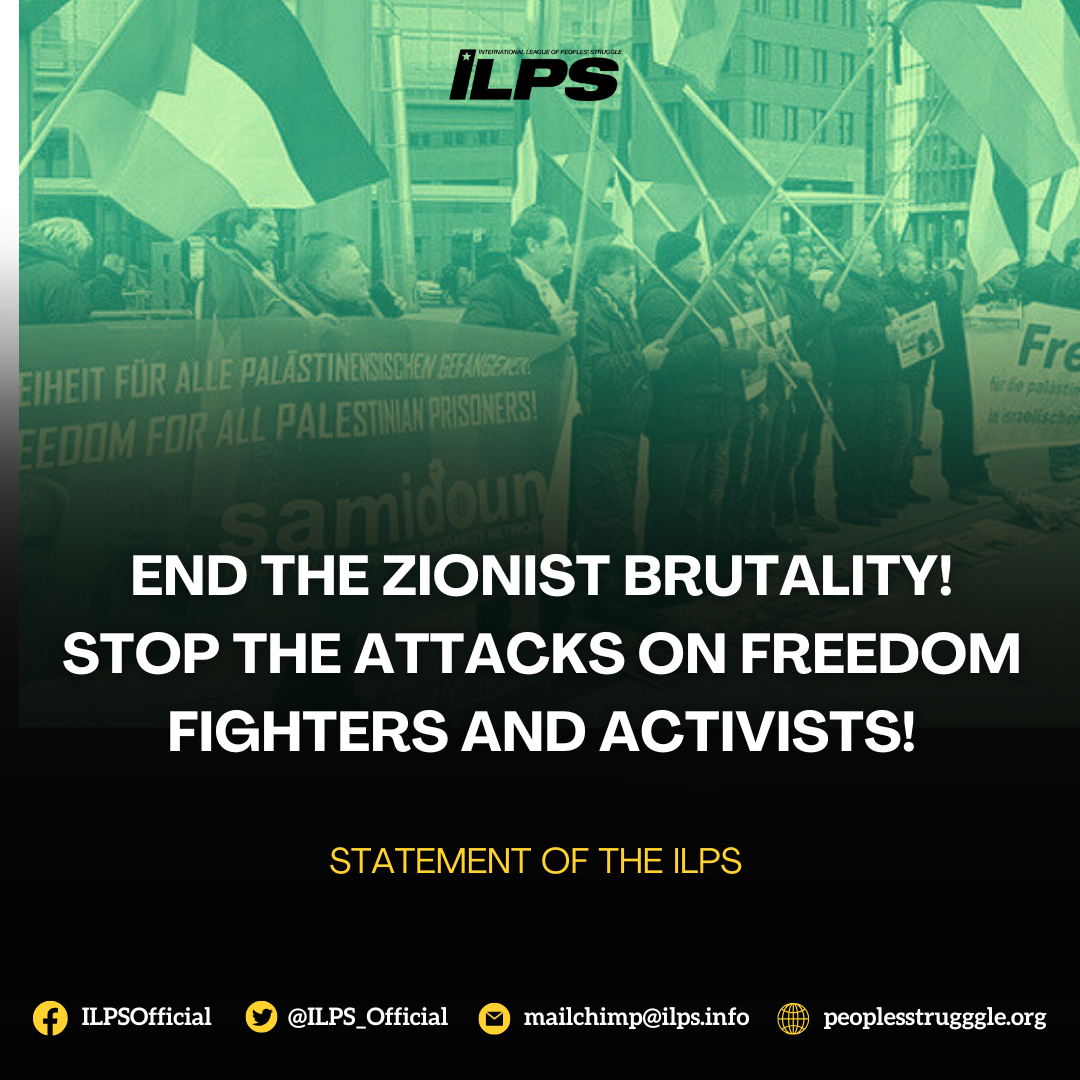West Papua, a territory located on the western half of the island of New Guinea, has been on international headlines for the past weeks as massive protests calling for a free West Papua (Papua Merdeka) continue on a daily basis in different regencies of the Indonesian-occupied nation.

Before the big demonstrations kicked off in mid-August, several actions were already held in commemoration of significant events in the West Papuan struggle. On the 15th of August 1962, the New York Agreement which promised West Papuans an independence referendum was signed by the Governments of Indonesia and The Netherlands with supervision from the United Nations. However, instead of a genuine referendum, a bogus election ironically called the “Act of Free Choice” was held on August 2, 1969 in which less than 1% of the Papuan population at that time was allowed to participate – and under threat from Indonesian troops. Consequently, the “referendum” resulted in a unanimous decision in favor of Indonesian occupation of West Papua.
The International Day of the World’s Indigenous Peoples is also celebrated annually on August 9 while the 50th Pacific Islands Forum (PIF) was hosted by Vanuatu from August 13-16 this year. The PIF’s communique called for Indonesia to allow a visit from the Office of the UN High Commissioner for Human Rights to look into the reported human rights abuses in the country before the next PIF in 2020.
West Papuan people’s organizations rallied on these days to call attention on different issues especially relevant to these dates. On Indigenous Peoples Day, youth activists held a public discussion on the unrestricted entry of investments in Papua’s land and the plunder of their natural resources as enabled by Indonesian President Joko Widodo. Papuans also took to the streets on the days of the PIF to support the United Liberation Movement for West Papua (ULMWP) delegation campaigning for West Papua in the summit.
All of these actions were met with repressive measures from state security forces which led to illegal detentions and arrests of demonstrators, including a seven-year old child. During a demonstration in Malang on the New York Agreement anniversary, ultra-nationalist organizations threw stones and chilis at the student protestors, and the latter still ended up being the ones arrested.
Kami Bukan Monyet (We are not monkeys)
August 17 is also a notable day for the Papuan people, not because they acknowledge being part of Indonesia but the opposite – the refusal to celebrate Indonesia’s Independence Day while under occupation is their form of protest against the irony of a state celebrating freedom while remaining to be a colonizer.
This year’s Indonesian Independence Day was marked by the attack on a Papuan student dormitory in Suarabaya by police and state-backed militia groups. The residents of the dormitory were accused of desecrating the Indonesian flag after allegedly finding one thrown in a sewer. Despite lack of evidence, 43 Papuan students were arrested and taken in by the police for questioning. The dormitory gates were also vandalized and the residence was damaged from stone-pelting and teargas shots by the ormas. The ultra-nationalist groups had shouted infamous ‘monkey’ slur against the Papuans during this incident.
On August 19, thousands of Papuans took to the streets of Manokwari and Jayapura in what would be the biggest protests in West Papua in years. These simultaneous actions called out the racism and violence against Papuans with the slurs used against them as their rallying call. Papuans living in other parts of Indonesia, together with Indonesian allies, have also responded to the call to action by organizing mass actions in the following days in Jakarta, Semarang, Yogyakarta, Bandung, and Denpasar.
Social media posts on the West Papua demonstrations have used the official hashtags of the Indonesian Independence Day celebrations to expose the realities behind the ‘free’ Republic of Indonesia.
Kami Bukan Merah Putih (We are not red and white)
The second week of the uprising saw a rise in the number of the protestors and areas of action. Condemnation of racism and police abuse have escalated into calls for referendum and independence. The Morning Star Flag, a symbol of West Papua resistance and independence, has waved freely in the mass actions both in West Papua and Indonesia.

In response to the growing unrest, Indonesia has deployed at least 3,000 more troops in the cities of Manokwari, Sorong, Fakfak, among other centers of protest. On August 28, six Papuan protestors in the Deiyai Regency were killed by security forces.
The unprecedented decision of the Chief of the Indonesian National Police and of the Commander of the Indonesian National Armed Forces to set up office in Papua on the 1st week of September has also posed added threat to the security of activists as this could only mean exacerbation of measures to suppress the mass movement, and that has always been a pretext for illegal arrests, torture, killings, and other rights abuse.
Divide and Rule
The Indonesian Government has referred to the news of the Deiyai massacre a hoax despite photo evidences and witnesses’ statements. West Papua, which never got enough media coverage in the first place, now also had its internet and communication lines cut-off. This has made it more difficult for journalists to verify information from the ground, and made it easier for the Indonesian Government to manipulate. Moreover, Wiranto has prohibited entry of foreign nationals in West Papua in addition to the long-standing ban on journalists and human rights workers.
The incident in East Java which ignited the massive protests was not the last of the attacks on Papuan student dormitories. On September 1, armed militias fired on a dormitory in Abepura leading to the death of a Papuan student. On September 9, unidentified individuals tossed two sacks of snakes in a dormitory in Surabaya. Wiranto has shrugged off this latest incident as yet another rumor.
General Wiranto is the former commander of the Indonesian National Army who was indicted by the UN for crimes against humanity. The massacres in East Timor, as well as other rights violations during Indonesian occupation of the country was carried out by the Indonesian army and state-backed militias under his watch. The Biak Massacre in 1998 was also under Wiranto’s term as commander. Despite his record, Wiranto was appointed by President Widodo as Coordinating Political, Legal and Security Affairs Minister.
Pacification and Smear Campaigns
Several arrests have already been carried out in the past month as part of the government’s crackdown on the protest ‘masterminds’. Just between 30 to 31st August, 8 individuals were arbitrarily arrested in Jakarta. Among them was Indonesian People’s Front for West Papua (FRI-WP) spokesperson Surya Anta Ginting who was charged of treason for being a staunch supporter of the West Papua struggle. Meanwhile, activist Sayang Mandabayan remains in prison after being arrested for possession of Morning Star flaglets in her suitcase.
Foreign nationals have not been saved from Indonesia’s vilification campaign. The Government had strongly stated against foreign interference in the protests in Papua which has also pushed the aforementioned restriction of entry in the region. Four Australians were deported due to their attendance in a demonstration in Sorong. A protest by Philippine activists last August in front of the Indonesian Embassy in Manila was red-tagged by the Acting Foreign Ministry Spokesman Teuku Faizasyah who has accused the protestors of being representatives of a communist group. Most recently, the Indonesian Embassy in Thailand threatened the organizers of one of the sessions during the ASEAN Peoples Forum which had resource persons from Thailand, Philippines, and West Papua to speak on the state of human rights and rights defenders in their countries. The Indonesian Government still managed to interfere in this space dedicated to civil society in order to stop the West Papuan speaker from talking about the current situation in Papua.
Activists and mass leaders suspected of organizing the ‘riots’ are still being hunted down by the Indonesian state. Among those criminalized is Indonesian activist Veronica Koman who has been posting updates on the situation in West Papua through her social media accounts which the government referred to as provocative. Veronica is a human rights lawyer who has constantly stood in defense of Papuans in and out of the court. National Committee for West Papua (KNPB) spokesperson Victor Yeimo also tops the wanted list of the Indonesian Government. Victor is a well-known leader in the West Papua independence movement and has remained committed to the struggle even after serving long sentences in jail.
The West Papua Liberation Army (TPNPB), the armed wing of the Free Papua Movement (OPM) has issued a 25-point statement which emphasizes that the problem in Papua is the violation of their right to self-determination by the United Nations, particularly by the Governments of the United States, Netherlands, and Indonesia. This right was repeatedly violated in the New York Agreement (15 August 1962), the Indonesian Military Invasion in Papua (1 May 1963), and the Act of Free Choice (1969). The TPNPB has clarified in their statement that the West Papuan struggle is not to demand development from the Government of Indonesia but to assert their sovereignty as a nation. The statement also listed specific demands such as for the Indonesian Government to stop deployment of military troops in Papua, to free Papuan activists who were arrested during the protests, and for the UN to intervene in the humanitarian situation and to immediately arrest Wiranto and have him tried in the International Criminal Court.
Stand and Fight with West Papua
 The Merdeka WestPapua Support Network joins West Papua support groups and advocates worldwide in calling for international attention on the worsening situation in West Papua.
The Merdeka WestPapua Support Network joins West Papua support groups and advocates worldwide in calling for international attention on the worsening situation in West Papua.
Protests and solidarity actions have been conducted in different parts of the world especially in North America, Europe, Asia, and the Pacific. Social media has also been an effective campaign platform, especially for disseminating news and popularizing the calls and demands of the West Papua uprising.
The a ppeal to support the West Papua people’s movement also includes the calls to address the day-to-day issues such as the continuing land grabbing and environmental plunder by big corporations such as the US’ Freeport in Timika, side by side the continuing militarization of Nduga and other Papuan communities in the highlands causing thousands of Indigenous Peoples to be refugees in their own land. The incident in Surabaya may have triggered the signal for an uprising but the demands are deeply rooted in the decades of oppression that generations of Papuans have had to endure.
ppeal to support the West Papua people’s movement also includes the calls to address the day-to-day issues such as the continuing land grabbing and environmental plunder by big corporations such as the US’ Freeport in Timika, side by side the continuing militarization of Nduga and other Papuan communities in the highlands causing thousands of Indigenous Peoples to be refugees in their own land. The incident in Surabaya may have triggered the signal for an uprising but the demands are deeply rooted in the decades of oppression that generations of Papuans have had to endure.
That’s why it is dignified why the Papuan people to continue to pursue this seemingly never-ending struggle. Their lives and those of their children literally depend on their victory. Likewise, the world can no longer ignore West Papua people’s struggle. To be silent over the realities in West Papua is to be complacent of the slow-motion genocide of the Papuan people. On the other hand, our solidarity will further strengthen the struggle for self-determination, not only of West Papua, but of all oppressed nations in the world!
Long live international solidarity!
Papua Merdeka!
Reference:
Deewa Dela Cruz, Merdeka West Papua Support Network secretariat, [email protected]



